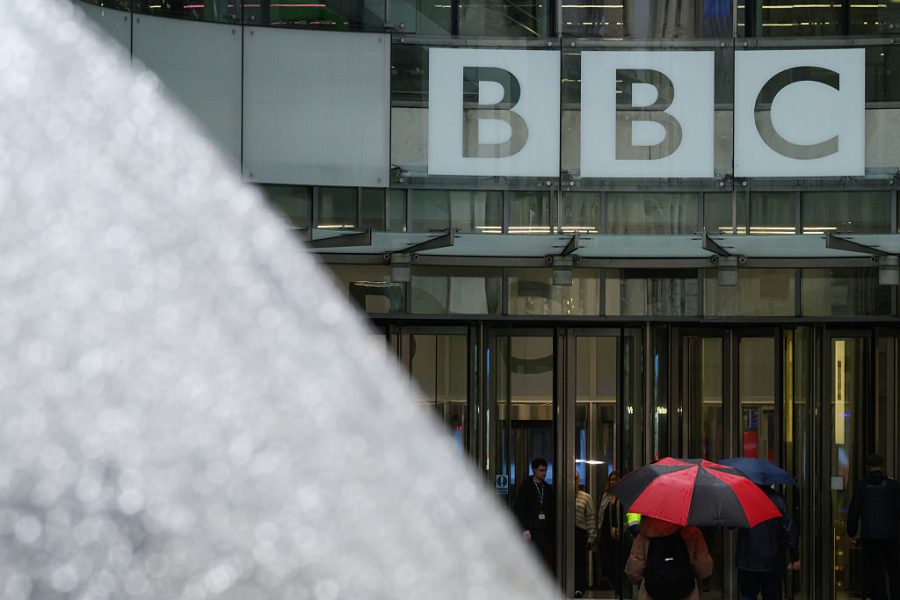Few people had heard of Zia Yusuf before he spoke at Reform’s final campaign rally in Birmingham. But after a stirring speech to 4,000 supporters, he became one of the election’s overnight stars. ‘This boy’s got real talent,’ admitted Nigel Farage afterwards. He is now emerging as one of the more intriguing figures in the landscape of the right: a self-described ‘British Muslim patriot’, a 37-year-old multimillionaire, who says his mission in politics is to take Farage to No. 10.
Farage is clearly Yusuf’s political lodestar: his name features dozens of times in our hour-long exchange
When we meet at The Spectator office (his £100,000 Range Rover parked outside), Yusuf says that a Reform UK government is quite conceivable. ‘We need five million votes extra from here,’ he says. ‘We think there’s around ten million in play for us.’ It’s unlikely – it would need roughly half of Labour and Tory voters to consider switching next time. But succeeding against the odds is normal to Yusuf. He became a multimillionaire last year after selling his company. ‘I was actually laying the groundwork to start a foundation before this,’ he says. ‘Very much focused on social mobility, which is close to my heart because I think I’m a reasonable example of that.’
Yusuf was born in Bellshill, a town in North Lanarkshire. His father was a paediatrician and his mother a nurse. They emigrated from Sri Lanka in the 1980s and because Yusuf won a half-scholarship, they could just about manage the fees at Hampton School in west London. Yusuf’s career in banking set him on course to be a Goldman Sachs partner, but in search of a different way of life he teamed up with a school friend, Alex Macdonald, and set up Velocity Black, a luxury concierge service, providing elite services to the ultra-rich via their phones. It was sold last year for just over £230 million.
Yusuf’s old company specialised in helping celebrities who wanted unusual or exotic experiences – swimming with orcas in Norway for example. His new party is aimed at the dispossessed. Yusuf became dismayed at how the failure to control immigration put pressure on hard-working families like his own. Migrant families feel the pressure particularly, he says: ‘We find it very difficult to accept that, having played by the rules, filled out all the forms, paid all the fees, done everything necessary to come here legally, that there are people who come here illegally, shamelessly and essentially go to the front of the queue. That doesn’t sit well with them.’
Yusuf says there are ‘lots of Muslims very interested in what I’ve done’. He cites private messages he received after his speech in June: ‘There’s a great silent majority that don’t want to stick their noses above the parapet.’ The same is true, he suggests, of his fellow tech bros in London who support Reform privately but would never dare admit it in public. He says: ‘When I have conversations with people in business in the UK, whether that’s in the tech sector, in the financial sector, people who serve on some of the biggest boards in this country – they are very much in Reform’s camp, in many cases voted for Reform.’
Yusuf met Farage a decade ago at a cocktail party hosted by the arch-Brexiteer Stuart Wheeler, who died in 2020. Farage is clearly Yusuf’s political lodestar: his name features dozens of times in our hour-long exchange. When I ask if he wants to be a Reform MP in any future government, he replies quickly: ‘Whatever Nigel wants, really… I’m best deployed doing the work I’m doing now. If Nigel sees fit in the future for that to change, that’ll be up to him.’
His promotion to Reform chairman in July came at the expense of Farage’s former deputy Ben Habib, who was sacked amid much public acrimony. Is Yusuf confident of avoiding the same fate? ‘I’ve known Nigel for a very, very long time,’ he says. ‘All I can say is that I’m here to do a job for him. Here to be the best party chairman I can possibly be… he’s a very loyal person, actually, and has people around him who have been around him for a very, very long time.’
Yusuf’s ascent followed his making a six-figure donation to Reform party coffers, an investment which he expects to pay dividends: ‘The underlying conditions in this country that have given rise to Reform and Nigel Farage are only going to get worse under Labour. I pray and hope they don’t, because I’m a patriot and I love this country much more than anything else. But the reality is that all of those things are going to get worse.’
A good ground game is essential if Reform is to capitalise on this. Reform is currently a limited company: Yusuf’s focus this summer is turning it into a proper political party. Membership, he says, is up to 77,000: some 2,000 alone have joined in the past week. What do they get for £25 a year? Reform’s new constitution will formalise the answer to this in a fortnight’s time. ‘Members are going to get to input on policy and they will get to come to our conference,’ he says. He admires the Tories’ success with garden fetes and local raffles: ‘Social events are going to be a really, really important part. This is one thing the Conservative party does do incredibly well – the social calendar at a branch level.’ And he insists that unlike the Tory party – with its overmighty centre – branches will pick parliamentary candidates and local policies. ‘Obviously we’ve got, what, 11 or 12,000 council seats up for grabs over the next three or four years? Those will pretty much entirely be voted for and formed at local level.’
‘I don’t think there are many countries in the world where my story would have been possible’
At a time when the ‘Muslim vote’ is taken to mean the force that took Jeremy Corbyn and four other pro-Gaza campaigns to parliament as independent MPs, he stands as a rare example of a Muslim on the right. How did he feel about Farage citing an opinion poll that found almost half support Hamas?
‘I’m all in favour of looking at data and trying to be objective about it. And I’ll tell you that if you’re unwilling to do those things, you don’t make a problem disappear by not looking at it.’
But polling Muslims, or any faith group, is notoriously difficult. Is that really a fair representation? ‘Look, it was one poll, right? It wasn’t a large sample size.’ (It was 170 under-25s.) ‘Do we have an issue with a small minority, I would argue, with regards to extremism in this country? Yes, we do.’ His colleague, Lee Anderson, was thrown out of the Tory party after claiming that ‘Islamists’ had ‘got control’ of the Mayor of London. Is that a sentiment with which he agrees? ‘The words Lee chose were probably clumsy. Lee’s a lovely man, doesn’t have a malicious bone in his body.’

Muslim voters, he says, have the same concerns as the rest of the British public. ‘The vast majority of the Muslims I have spoken to are actually pleased to see someone in public life who is Muslim doing something other than insult British voters. And that’s what I’m told consistently.’
He points to Humza Yousaf’s 2020 speech which criticised various Scottish establishment figures for being ‘white’. It was, he says, ‘the most demonstrably racist speech given by a world leader that I can remember… It breeds resentment, right? It unfairly maligns. A lot of people will look at that and might form a view about Muslims based on that sort of behaviour. I really do believe that.’
Zia Yusuf is a rare example of a British tech millionaire who gets involved in politics. In the US, Elon Musk, Peter Thiel and David Sacks donate money and host fundraisers for the Republicans. J.D. Vance owes his career to Thiel. But aside from the late Wheeler, it’s hard to think of their British equivalents. Yusuf, however, thinks that public life and politics are the most effective way of giving back to this country. ‘I could not think of a more valuable use of my time and energy than doing this,’ he says. ‘I don’t think there are many countries in the world where my story would have been possible.’
It’s a story which may have far wider consequences, if Yusuf even half succeeds in his ambition to bury the Tory party once and for all.








Comments